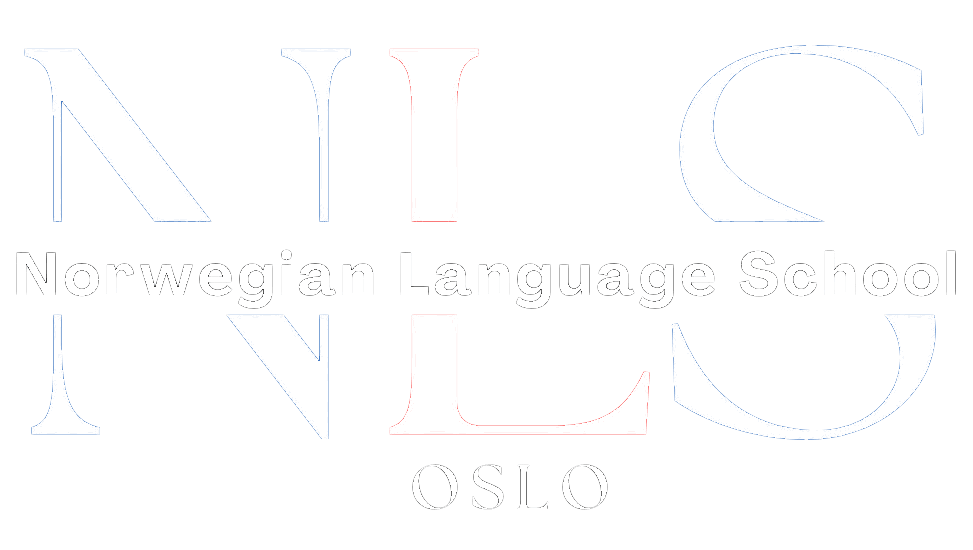

Unlocking Business Growth: The Power of Norwegian Language in International Development
Language plays a crucial role in international business. It is not only a means of communication but also a tool for building relationships and fostering understanding between different cultures. In today’s globalized world, businesses are increasingly operating on an international scale, and the ability to communicate effectively in different languages has become a valuable asset.
Effective communication is essential for establishing trust and credibility with clients and partners from different countries. It allows businesses to understand the needs and expectations of their international counterparts, negotiate effectively, and build strong relationships. Language skills also enable businesses to navigate cultural differences and adapt their strategies to local markets.
Table of Contents
ToggleThe Growing Importance of Norwegian Language in Business
In recent years, there has been an increasing demand for Norwegian language skills in the business world. Norway’s economy has been growing steadily, and the country has become an important player in various industries, including oil and gas, renewable energy, shipping, and technology. As a result, more businesses are looking to establish partnerships and expand their operations in Norway.
Norway’s global reach is another factor contributing to the growing importance of the Norwegian language. The country is known for its strong diplomatic ties and active participation in international organizations such as the United Nations and NATO. Norwegian companies are also expanding their presence abroad, particularly in neighboring countries such as Sweden and Denmark.
Benefits of Incorporating Norwegian Language at the Workplace
There are several benefits to incorporating Norwegian language skills at the workplace. Firstly, it allows for improved communication with Norwegian clients and partners. By speaking their language, businesses can establish a deeper connection and better understand their needs and expectations. This can lead to more successful negotiations, stronger partnerships, and increased customer satisfaction.
Secondly, learning Norwegian enhances cultural understanding and sensitivity. Language is closely tied to culture, and by learning the language, employees gain insights into Norwegian customs, traditions, and values. This cultural knowledge can help businesses navigate social situations, avoid cultural misunderstandings, and adapt their products and services to the local market.
Lastly, incorporating Norwegian language skills can increase competitiveness in the global market. By being able to communicate in Norwegian, businesses gain a competitive edge over their competitors who may not have invested in language training. This can open up new business opportunities and give businesses a unique selling point in the international arena.
How Learning Norwegian Can Unlock Business Growth Opportunities
Learning Norwegian can unlock various business growth opportunities for companies. Firstly, it allows for expansion into the Norwegian market. Norway has a strong economy and a high standard of living, making it an attractive market for many businesses. By speaking the language, companies can better understand the local market dynamics, establish relationships with Norwegian customers, and tailor their products and services to meet their needs.
Secondly, learning Norwegian provides access to Norwegian resources and expertise. Norway is known for its expertise in various industries, including oil and gas, renewable energy, and maritime technology. By speaking the language, businesses can tap into this knowledge base, collaborate with Norwegian experts, and gain a competitive advantage in their respective industries.
Lastly, learning Norwegian helps build trust and credibility with Norwegian stakeholders. Norwegians value personal relationships and trust is an important factor in business dealings. By speaking their language, businesses show a commitment to understanding their culture and building meaningful connections. This can lead to stronger partnerships, increased loyalty, and long-term success.
Norwegian Business Language: Key Vocabulary and Phrases
To effectively communicate in a business setting in Norway, it is important to be familiar with key vocabulary and phrases. Here are some essential Norwegian business terms and expressions:
– “Forretningsmøte” (business meeting)
– “Forhandlinger” (negotiations)
– “Presentasjon” (presentation)
– “Kunde” (customer/client)
– “Leverandør” (supplier)
– “Markedsundersøkelse” (market research)
– “Konkurranseanalyse” (competitive analysis)
– “Salgsstrategi” (sales strategy)
– “Budsjett” (budget)
– “Resultat” (result)
In addition to these terms, it is also important to be familiar with common phrases used in meetings, negotiations, and presentations. Some examples include:
– “Kan vi avtale et møte?” (Can we schedule a meeting?)
– “Hva er deres forventninger?” (What are your expectations?)
– “Vi ønsker å inngå et samarbeid med dere.” (We would like to collaborate with you.)
– “Kan dere gi oss et tilbud?” (Can you provide us with a quote?)
– “Vi er interessert i å utvide vår virksomhet i Norge.” (We are interested in expanding our business in Norway.)
– “Takk for møtet. Vi vil ta kontakt med dere snart.” (Thank you for the meeting. We will be in touch soon.)
Strategies for Implementing Norwegian Language in International Development
To effectively implement Norwegian language skills in international development, businesses can adopt several strategies. Firstly, they can incorporate language training into employee development programs. This can include providing language courses or hiring language tutors to help employees improve their Norwegian language skills. By investing in language training, businesses show a commitment to supporting their employees’ professional growth and enhancing their ability to communicate effectively with Norwegian stakeholders.
Secondly, businesses can partner with language schools and cultural organizations. These partnerships can provide access to specialized language training programs and resources tailored to the needs of businesses. Language schools and cultural organizations often offer courses specifically designed for professionals who need to learn a foreign language for business purposes. They can also provide cultural insights and guidance on how to navigate Norwegian business etiquette.
Lastly, businesses can provide language resources and support for employees. This can include providing access to language learning materials, such as textbooks, online courses, and language learning apps. Businesses can also organize language exchange programs or language conversation groups where employees can practice their Norwegian language skills with native speakers. By creating a supportive language learning environment, businesses can encourage employees to actively engage in learning the language and improve their proficiency.
Case Studies: Successful Businesses Utilizing Norwegian Language
There are several examples of companies that have successfully integrated Norwegian language into their operations. One such example is a multinational technology company that expanded its operations into Norway. The company recognized the importance of speaking the local language to establish strong relationships with Norwegian clients and partners. They invested in language training for their employees and provided ongoing support to ensure that they could effectively communicate in Norwegian. As a result, the company was able to secure major contracts with Norwegian clients and establish a strong presence in the Norwegian market.
Another example is a global shipping company that operates in Norway. The company recognized the value of speaking Norwegian to effectively communicate with their Norwegian crew members and local stakeholders. They implemented a language training program for their employees, which included both classroom-based learning and on-the-job language practice. This enabled the company’s employees to communicate more effectively with their Norwegian counterparts, resulting in improved teamwork and increased operational efficiency.
These case studies highlight the importance of incorporating Norwegian language skills into business operations. By investing in language training and providing ongoing support, businesses can unlock new opportunities for growth and establish themselves as trusted partners in the Norwegian market.
Overcoming Language Barriers: The Role of Translation and Interpretation
While learning Norwegian is important for effective communication, there are times when businesses may still encounter language barriers. In such cases, professional translation and interpretation services play a crucial role in facilitating communication across languages.
Translation services are essential for translating written documents such as contracts, marketing materials, and product descriptions. Professional translators ensure that the meaning and tone of the original text are accurately conveyed in the target language. This is particularly important in business settings where precision and clarity are paramount.
Interpretation services, on the other hand, are necessary for facilitating real-time communication during meetings, negotiations, and presentations. Professional interpreters can provide simultaneous or consecutive interpretation, depending on the needs of the business. They ensure that all parties can understand and participate in the conversation, regardless of their language proficiency.
By utilizing professional translation and interpretation services, businesses can overcome language barriers and ensure effective communication with their Norwegian counterparts. This not only facilitates business transactions but also helps build trust and credibility with Norwegian stakeholders.
Cultural Considerations When Utilizing Norwegian Language in Business
When utilizing Norwegian language in business, it is important to consider cultural norms and values. Norway has its own unique culture, and understanding these cultural nuances is essential for successful business interactions.
Norwegians value equality and consensus-building. Decision-making processes tend to be collaborative, with an emphasis on reaching a consensus rather than individual authority. When communicating in Norwegian, it is important to adopt a collaborative approach and involve all stakeholders in the decision-making process.
Norwegians also value punctuality and efficiency. Meetings and appointments are expected to start on time, and delays are generally frowned upon. It is important to be punctual when conducting business in Norway and to respect others’ time.
Lastly, Norwegians appreciate directness and honesty in communication. They value open and transparent communication and may find indirect or ambiguous language confusing. When communicating in Norwegian, it is important to be clear, concise, and straightforward.
By understanding these cultural norms and values, businesses can avoid cultural misunderstandings and build stronger relationships with their Norwegian counterparts.
The Future of Norwegian Language in International Business
The future of Norwegian language in international business looks promising. Norway’s economy continues to grow, and the country’s global reach is expanding. As businesses seek to establish partnerships and expand their operations in Norway, the demand for Norwegian language skills will continue to increase.
Language skills play a crucial role in building successful international partnerships. By speaking the local language, businesses can establish trust, understand the needs and expectations of their Norwegian counterparts, and adapt their strategies to local markets. Norwegian language skills also provide access to Norwegian resources and expertise, unlocking new business opportunities and giving businesses a competitive advantage.
In conclusion, the importance of language skills in international business cannot be overstated. As businesses continue to operate on a global scale, the ability to communicate effectively in different languages will become increasingly valuable. By investing in Norwegian language skills, businesses can position themselves for success in the Norwegian market and beyond.

Norwegian A1-A2
Course Overview The Norwegian A1-A2 course is an online program focused on teaching essential Norwegian grammar and vocabulary. It includes a variety of materials and topics, with opportunities to interact with a Norwegian teacher entirely online. Curriculum Highlights The course covers key areas such as grammar and vocabulary and topics such as family, daily life, education, work, traditions, and leisure activities. Who Should Enroll? This course is perfect for beginners or those at the A1 or A2 levels who want to improve their Norwegian skills. What You Get Access to the full Norwegian A1-A2 course. A monthly 1-hour online conversation with a teacher. Many written and oral assignments. Comprehensive information on Norwegian grammar, Norwegian vocabulary and how to use them, important sentence structures, etc. Tips on additional resources to further enhance your Norwegian learning.
0 students enrolled
Last updated Dec 10th, 2024
If you want to learn Norwegian, you can register for classes here. We look forward to hearing from you and helping you become fluent in Norwegian.





